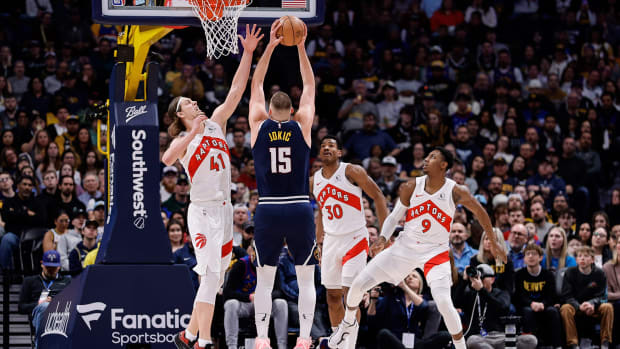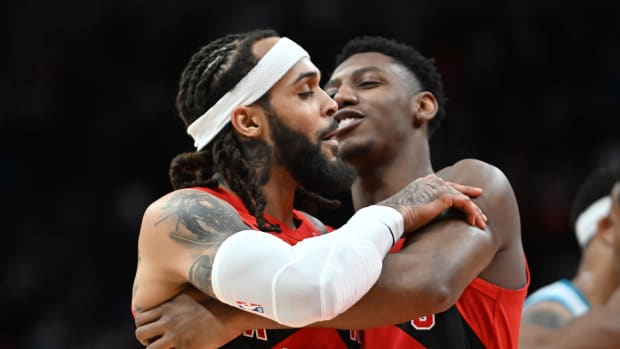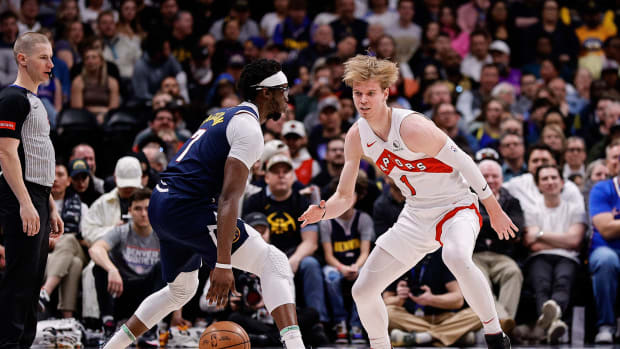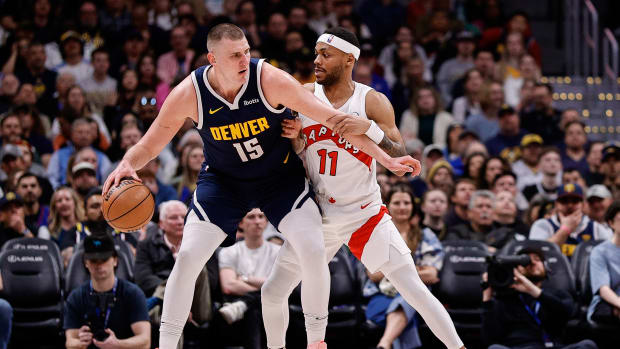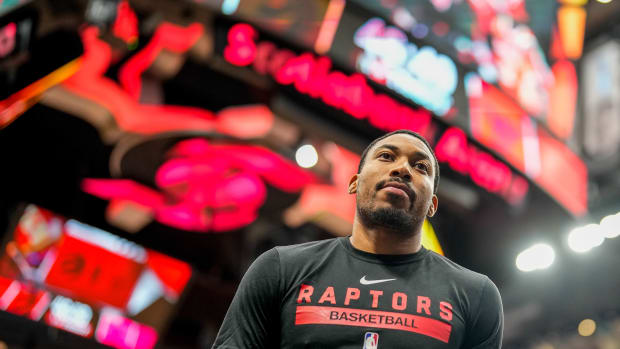Going Small Could Solve Raptors' Biggest Problem
Toronto Raptors coach Nick Nurse has preached all season about the need for defence. It's been strange at times to hear him focus so closely on the defensive end when the Raptors' biggest problems for the past two seasons have come on offence. In some ways, it makes sense for Toronto to go with the more offensively skilled players like Matt Thomas and Terence Davis even if their defence leaves much to be desired. Yet that's not how Nurse thinks. To him, great defence creates create offence.
So far this season, the Raptors' bigs haven't provided much of either. Aron Baynes has seen his minutes dwindle as he continues to struggle to make an impact on either end of the floor. Chris Boucher, while able to provide an offensive spark occasionally, remains a liability on the defensive end. And while Alex Len has shown some ability to defend the paint, opposing teams have no trouble putting him in switch situations and taking advantage.
"Gotta evaluate everything, I think. Gotta keep plugging away," Nurse said after another lackluster game from his bigs on Wednesday. "Aron’s had a couple of tough ones here after having a couple of real good ones at the beginning. Gotta get him back playing to at least a sustainable level, just an average or maybe slightly above average level."
With the bigs struggling at both ends of the floor, the answer to the Raptors' frontcourt problems might lie in its small-ball unit.
The Raptors haven't gone super small much this season. The lineup of Kyle Lowry, Fred VanVleet, Norman Powell, Pascal Siakam, and OG Anunoby has played just 20 possessions so far this year. Yet even in limited minutes, their statistics are telling. According to Cleaning the Glass, that small-ball lineup is +26.8 over those 20 possessions with a 95 Offensive Rating and a 68.2 Defensive Rating. For comparison, the Raptors as a team have an Offensive Rating of 106.7 and a Defensive Rating of 112.5, per Cleaning the Glass. Essentially, that small-ball lineup is historically good defensively, albeit in a small sample size, and pretty atrocious offensively.
It's hard to take much away from just 20 possessions, but those stats represent the continuation of a trend that's carried over from last year's playoffs when that same unit played 68 possessions and had an Offensive Rating of 92.6 and a Defensive Rating of 87.
It's hard to believe that the Raptors' defence gets better when they take their big off the floor and replace him with Powell, an OK defender, but that appears to be the case. The reason for this is largely due to Toronto's ability to switch on defence with its small-ball unit. When the Raptors have a big on the floor, be it Baynes, Boucher, or Len this year or Marc Gasol or Serge Ibaka last season, opposing teams could draw Toronto's centre out of the paint and into pick-and-roll situations, forcing the big to defend a small, nifty guard. When Toronto goes small, however, the Raptors can switch 1-through-5, stopping their opponent's ability to run screen plays.
“I thought we cut a lead down and it seemed like the defensive possessions were really good in it. It enabled us to switch," Nurse said after he deployed the unit for the final minutes of Toronto's loss to the Phoenix Suns. "They did try to force-feed it inside a little bit and we did a good job of swarming Ayton and making some good switches to get some size back on him. So yeah we could see it but it’s tough when they have a big big like that out there, but it did look good tonight."
The other key to that unit's success is Anunoby's ability to defend opposing bigs. He's had success as Toronto's de facto centre in the past, though it's not a great matchup for him against truly big centres, as Nurse pointed out. It helps, though, having players like Anunoby, Lowry, and VanVleet who can defend up a few positions and won't get killed if they're asked to stop much bigger players.
"I like that you know just being out there, being mobile we can switch. Everyone's fighting and I think once we have that type of energy it's tough to score on us," Siakam said. "Even if they have length we have guys that fight like Kyle that fight like hell and Fred and all those guys you can't push them around too much. It’s a good unit once we’re engaged and everybody's flying around it's definitely tough."
While playing that small-ball unit for extended stretches throughout the game might mess with the Raptors rotation a little bit, if Nurse really wants to commit to improving the defence this season, the answer might lie in Toronto's small-ball unit.
